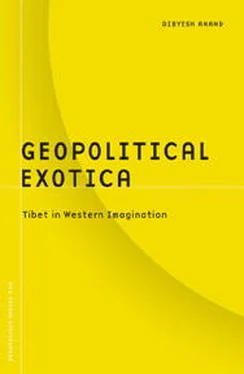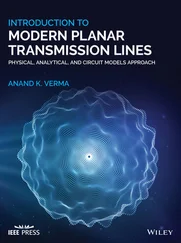But the task is not only to look at concerns and issues affecting people in the non-Western world. It also entails examining old themes of state, power, war, and peace from new and different perspectives. For example, within the rubric of conventional IR Tibet is mostly considered in terms of its role in Sino-Western relations or Sino-Indian border disputes (see Lamb 1986), thus effectively denying subjectivity to the Tibetans themselves. This resonates with the early-twentieth-century British preoccupation with Tibet's role in the "Great Game"-the imperialist rivalry between the British and the Russians in Central Asia. The analysis of the Tibet question using postcolonial IR theory entails scrutinizing the vocabulary afforded by conventional IR and considering hitherto undertheorized issues such as imperialism, history, diaspora, representation, and identity.
Postcoloniality politicizes culture and encultures politics. In this work, the case for a postcolonial IR is made by looking at the general theme of representation (and its productive relation with identity) and the specific issue of Western representations and Tibetan identity discourses. What Doty writes about representation of the South (the non-West) by the North (the West) reflects my use of the term "representation" here:
By representation I mean the ways in which the South has been discursively represented by policy makers, scholars, journalists, and others in the North. This does not refer to the "truth" and "knowledge" that the North has discovered and accumulated about the South, but rather to the ways in which regimes of "truth" and "knowledge" have been produced. (1996b, 2)
Even though the issues raised by the Tibet question are international in scope and there is an increasing recognition that it remains one of the unsolved problems in world politics, Tibet rarely figures in the international politics literature. When it does come up, it is either as a footnote to the Cold War (see Conboy and Morrison 2002; Knaus 1999; Shakya 1999), or as a pawn in Sino-Western (see Sautman 1999; Xu Guangui 1997) or Sino-Indian relations (see Addy 1984; Ghosh 1977; Ginsburgs i960; Mehra 1979, 2005; Norbu 1997). This neglect reflects a web of strategic interests of major Western and regional powers, IR's focus on relations between states, and, finally, its ethnocentrism. [2]All this was clearly evident after 1959, when China acquired complete control over Tibet, giving up the uneasy accommodation with the Dalai Lama-led Tibetan government that had lasted for less than a decade. Despite the international condemnation of Chinese action in both strongly worded representations such as those of the International Commission of Jurists and feeble statements in the United Nations General Assembly, [3] the states of the world accepted the Tibet question as an "internal" Chinese matter.
Realist and liberal strands of IR theory seem incapable of engaging with the complexity of the Tibet question, though the emergence of critical schools within the field suggests the potential for a better understanding. The Tibetan issue can be studied in terms of sovereignty/suzerainty, imperialism, human rights, representation, identity, nationalism, diaspora, and transnationalism. An approach that highlights the interlinkages between these and also emphasizes the need for some sort of dialogue between critical IR and postcolonial-ism better addresses the complexity surrounding it. Critical international theories provide sophisticated investigations of some of these themes, notably sovereignty, representation, and nationalism. But themes of imperialism, diaspora, Western representational practices, and transnational identity require insights from postcolonial theory.
Thus, within the wider argument for a postcolonial approach to IR, I seek to theorize Western cultural representations of Tibet and their constitutive (both enabling and constraining) and performative roles in two crucial elements of the Tibet question-the framing of the debate over political status of Tibet and Tibetan identity discourses. If we are to redefine IR as a discourse of world politics that appreciates the importance of issues of power in a postcolonial world, we have to take on board concerns such as the ones expressed here. After all, Tibetanness is a typical postcolonial/post-colonial narrative of identity politics combining processes of migration with the human desire for fixity.
A critical engagement with "Exotica Tibet and world politics" presents its own problems in disciplinary terms. IR has not dealt with postcolonialism and the Tibet question sufficiently; post-colonial studies has ignored IR as well as Tibet; and, although Tibetan studies has some encounter with postcolonial theory (see Bishop 1989, 1993; Korom 1997a, 1997b; Lopez 1998), it has had little contact with IR theory. So, in borrowing from IR, postcolonial theory, and Tibetan studies, I move beyond all three to set up a theoretical framework within which to understand the poetics and politics of Exotica Tibet. Not only does this framework entail recognizing the cultural underpinnings of world politics, but it also politicizes our understandings of culture. In the spirit enunciated by the first collection of poststructuralist writings in IR, here is a book "that is theoretical (but not methodological), that is empirical (but not empiricist), that problematizes (but does not problem-solve) world politics" (Der Derian and Shapiro 1989, xi).
Chapter 1 highlights the ethnocentrism of IR and outlines a critical approach to the international informed by postcoloniality. It then focuses on representation of the Other as an international political practice. After examining the treatment of representation within critical IR, its limitations are highlighted and the stage is set for analysis of the poetics and politics of Exotica Tibet in the subsequent chapters.
Cultural representation of the non-Western Other lies at the core of Western colonial and neocolonial discourses. A critical political analysis of the Western imagination of the Other involves a recognition at two levels-the practices of essentializing and stereotyping that provide the backbone as well as various strategies (such as infantilization, eroticization, debasement, idealization, and self-affirmation) that put flesh on the imagined Other. The strategies are not fixed ahistorically but nevertheless remain stable over a period of time. In chapter 2 I identify significant rhetorical strategies that characterize Western representations of the (non-Western) Other, focusing mainly on Western colonial representations, and substantiate the argument through the empirical study of Exotica Tibet.
In chapter 3 I further delve into the poetics through an in-depth analysis of a selection of prominent cultural sites within which Exotica Tibet has operated in the twentieth century. This includes novels, travelogues, memoirs, films, and images. The idea is not to provide an exhaustive list of the cultural sites that have contributed to the creation of the imagin-o-scape of Exotica Tibet but to lay bare the representational strategies operating within them.
After this encounter with poetics, in the next three chapters I shift attention to the politics of Exotica Tibet-examining the impact of the representational regimes on the identity of Tibet as well as Tibetan identity. Exoticized representation has had a very significant effect on identity discourses among the Tibetans. Tibet is not some prediscursive geographical entity but a place that is discursively constructed through the imaginative practices of the various actors involved. [4]Similarly, Tibetanness is not some essence of Tibetan life but is the politicized articulation of themes of identity and difference, of commonality and distinctiveness. And indeed the representational regimes, even though productive, tend to restrict and contain the options available for self-expression. This productive-cum-restrictive impact of Western representations on the identity of Tibet as well as on Tibetan identity reflects a trait of modern representational regimes in general.
Читать дальше












